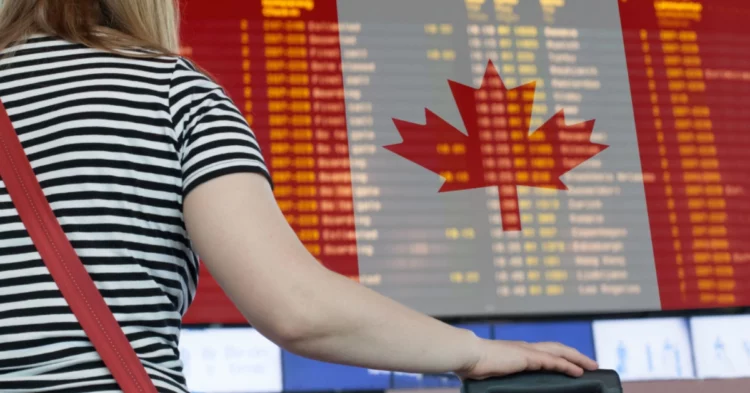As more Canadians gear up for fall travel, the federal government has released updated travel advice designed to help you avoid border issues, unexpected fees, and safety risks while overseas. Whether you’re planning your first trip in years or just need a refresher, these new guidelines from Global Affairs Canada could save you from serious headaches.
Table of Contents
Read Up: Prepare Yourself Before You Go
Check Travel Advisories and Entry Requirements
Before you book anything, review Canada’s official travel advisories for your destination. These pages offer real-time insights into safety, visa rules, entry restrictions, local laws, and health alerts — all essential to ensure a smooth entry into your chosen country.
Important: Some countries require your passport to be valid for at least six months beyond your return date. Even if it hasn’t expired yet, this rule could prevent you from boarding your flight or crossing the border.
Know the Driving Rules (and Permits)
Planning to rent a car or scooter abroad? Many countries don’t recognize Canadian driver’s licences on their own. You may need an International Driving Permit (IDP). Without one, you could be denied a rental vehicle or fined.
Money Matters: Payment, Cash & ATM Warnings
The government warns travelers about:
- Card skimmers in high-risk destinations
- Surprise ATM and currency exchange fees
- Locations that are strictly cash-based
To avoid nasty surprises, research the preferred local payment methods and consider carrying multiple payment options.
Power, Plugs & Public Wi-Fi Safety
Different countries use different voltage and plug types, so an adapter or voltage converter might be necessary. A power bank is also a smart addition to your packing list.
Planning to use free Wi-Fi? The government recommends:
- Using a VPN for added security
- Considering eSIMs or international data plans to avoid risky public networks
If you don’t need to bring laptops or tablets, leave them at home and travel light.
Don’t Overlook Transit Visas or Long Layovers
Even if you’re only passing through a country on a layover, you might need a visa or Electronic Travel Authorization (eTA). Always double-check every country on your itinerary, even if you’re not staying long.
Also, be sure to allow extra time for airport layovers, especially in larger or unfamiliar airports. You’ll need time for:
- Immigration checks
- Security screening
- Finding your next gate
And if it’s been a while since your last trip, brush up on your airline’s baggage rules and airport security restrictions.
Ontario Announces Changes to Housing Support Fund for Municipalities
Register: Stay Connected While Abroad
Use the Registration of Canadians Abroad
This free service allows you to register your trip with Global Affairs Canada. In return, you’ll receive alerts about:
- Natural disasters
- Civil unrest or protests
- Security threats in your destination
It also allows Canadian officials to reach you in case of a national emergency back home.
Share Your Plans With Someone You Trust
Leave a copy of your:
- Travel itinerary
- Passport
- Travel insurance details
…with a friend or family member. It’s a simple precaution that can help if something goes wrong and someone needs to contact you.
Reach Out: Know How to Get Help
Save Emergency Contacts Before You Fly
Always have the contact details of the nearest Canadian embassy, consulate or high commission saved in your phone and written down. They can assist you if:
- You lose your passport
- You’re injured or detained
- Natural disasters or emergencies occur
You can also call the Emergency Watch and Response Centre in Ottawa, available 24/7, if you’re in urgent need of assistance while abroad.
Bonus Tip: Don’t Travel Without Insurance
Whether you’re planning to relax on a beach or go ziplining in the jungle, comprehensive travel insurance is non-negotiable. The government specifically recommends insurance that includes:
- Adventure activities coverage
- Medical emergencies and hospital care
- Emergency evacuation
A medical emergency in another country can result in tens of thousands of dollars in expenses — and without proper coverage, you’re on the hook.
Final Thoughts A Little Prep Goes a Long Way
Travel can be exciting, but preparation is key to making sure your trip stays safe, smooth and enjoyable. By following the 3 Rs — Read Up, Register, Reach Out — you’ll be ready for just about anything.

